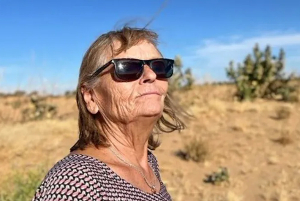First lady, Lordina Mahama has called for an end to discrimination against the girl child.
According to her the girl must not be treated differently or segregated because of their gender but on the expectations of how they fulfill their assigned duties or responsibilities.
Lordina Mahama was speaking at the launch of the 2013 State of the World’s Girls Global Report and ‘The Because I Am A Girl Campaign’ by Plan Ghana to mark the international day of the Girl Child.
It was on the theme protecting children and adolescent girls in disaster.
She observed that the launch of the report provides an important avenue for public discussions, debates and awareness of the social, economic and political effects of disasters on girls and children.
“Even without disasters, I have seen at first hand how the future of some young girls and children have been truncated because of the poor state and living conditions of their families.”Mrs. Lordina Mahama added.
According to her, Poverty cannot be and does not create a good environment for any growing child. It is worse when a growing adolescent girl is caught up in a natural disaster or war.
She noted that through her organization, the Lordina Foundation, she has for many years been working with children especially the unfortunate ones who have been admitted into orphanages.
“Girl in particular must not be treated differently or segregated because of their gender but on the expectations of how they fulfil their assigned duties or responsibilities,” Lordina Mahama added.
For his part Country Director, Plan Ghana Prem Shukla, said girls in Ghana continue to face challenges on a daily basis due to socio-economic values in some communities where boys were given preference over girls when it came to education.
According to him, the day was to create awareness about the challenges facing the girl and to bring together international attention to focus on these challenges to rally around communities, organizations, politicians, activists, leaders and individuals towards achieving full potentials of girls.
ILO Director-General Guy Ryder has called for a coherent set of measures to ensure that girl children around the world attain social justice and progress.
In a statement issued for the first International Day of the Girl Child, marked on October 11, Ryder said that current structures, policies and values which put girl children at a disadvantage must be changed.
“Gender inequalities that take root at an early age tend to produce long-term gender inequality which is reproduced in the world of work. Notwithstanding the values, principles and rights so widely endorsed by the international community, too often, the reality is that girls are systematically left behind by virtue of their sex. This must end.”
The term “girl child” has many connotations, but it is generally used to emphasize the unique challenges faced by girls under the age of 18.
The two themes of the UN day are child labour and child marriage – practices described by Ryder as “a denial of the rights of children and an acute constraint to their full development.”
“Such practices also weigh heavily on the overall capacity of societies to achieve their development objectives,” he added.
Around 88 million of the world’s child labourers are girls. Many are in the lowest paid, least secure jobs and find themselves constrained by gender inequality at home and in the workplace. Others who work in the home remain invisible and unaccounted for.
Some 88 million of the world’s child labourers are girls.
Improving the situation of the girl child on a sustainable basis calls for a coherent set of measures geared towards changing structures, policies and values that sustain social injustice.
General News of Friday, 11 October 2013
Source: radioxyzonline
Discrimination against the girl child must end – Lordina
Entertainment












